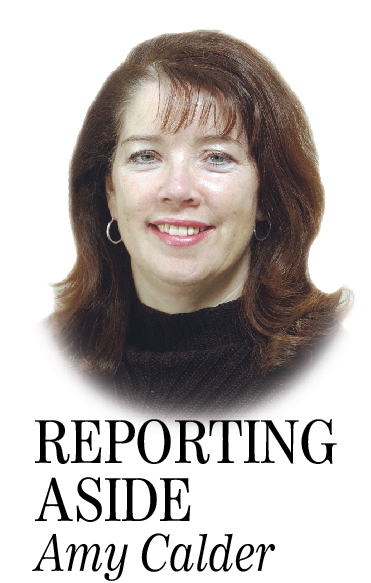It was a typical September morning in 2001 as I parked my car in the lot and ascended the back stairwell to the second-floor newsroom.
The door opened next to my desk and the first thing I noticed was that no one was sitting. The few employees who arrive early in the newsroom were standing before a television perched high on the wall between the city editor and assistant editor’s desk.
Standing glued to the screen were my boss, the late Glenn Turner, who was city editor, newsroom artist Stacy Blanchet, entertainment editor Deborah Packard, and news assistant April Paul. The World Trade Center towers were on the screen and Blanchet told me a plane had struck one of the towers. Hence, the smoke pouring out of it.
I dropped my gear and joined my co-workers and in short order another plane struck the towers.
The talk quickly turned to the fact that this was no accident — that something sinister was occurring.
And then the Pentagon got hit and a fear I’ve never felt since coursed through my veins.
My first thought was that this must be World War III, and I asked Turner, our reliable and sensible editor, if that were the case.
I was relieved when he responded in the negative and then gave us our marching orders.
I was to go to Waterville Senior High School and see what was going on there — sit in classrooms and listen to teachers and students process what was happening.
Everyone was in a sort of trance, not wanting to believe that our country had been attacked, that so many people were dead or dying, that a building housing some of Washington D.C.’s most important defense officials charged with keeping us safe had been hit.
We were scared, nervous and worried about what would come next.
Teachers set up televisions in some classrooms so students could stay abreast of the news and discuss the situation. Students talked about how they felt. Teachers, clearly shaken, tried to be strong and supportive.
It was a moment in history we will never forget, one so painfully etched in our memories that we can pinpoint, if asked, exactly where we were and who we were with at the time, much like we do when discussing President John F. Kennedy’s assassination in Dallas or Princess Diana’s fatal car wreck in Paris — or, if we go back far enough, the moment the Japanese attacked Pearl Harbor.
That the terrorist attacks were 16 years ago Monday is astonishing, really. It seems as if it were yesterday.
Like remembering our deceased parents when their birthdays arrive each year, or recalling old friends on the anniversary of their deaths, we revert to those agonizing moments of Sept. 11, 2001, as we watched the horror unfold.
For us, it is a poignant reminder that, in what we take for granted as a safe, secure and insulated life, there is danger.
In other places, all over the world, adults and children experience the horrors of war and terror every day. For them, it is a way of life.
On this day, we mourn the deaths of all those who died on 9/11 and honor the courage of emergency responders. We also remember the families who suffered great loss and pray they have found healing and a sense of peace.
As remote as the possibility of world peace seems, it is critical that we, now more than ever, continue to work toward, strive for, and think in terms of — peace. Our survival depends on it.
Amy Calder has been a Morning Sentinel reporter for 29 years. Her column appears here Mondays. She may be reached at acalder@centralmaine.com. For previous Reporting Aside columns, go to centralmaine.com.
Send questions/comments to the editors.



Comments are no longer available on this story